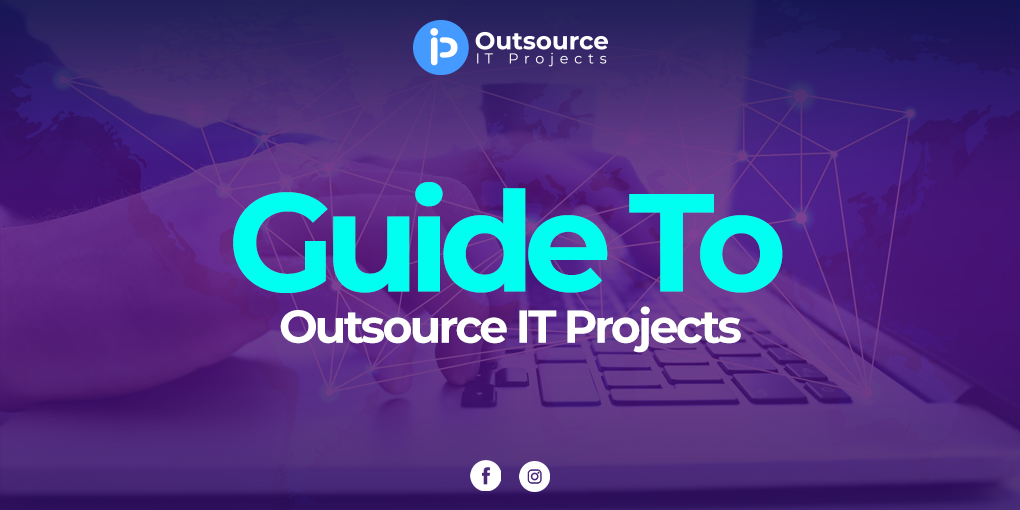A Guide To Outsource IT Projects
Businesses frequently struggle to manage and carry out complicated IT projects in today's fast-paced technological environment. Both large and small businesses are now looking to Outsource IT Projects to carry out their daily operations. Increasing capacity, lowering operating costs, improving organizational efficiency, and streamlining business processes may all be accomplished strategically and economically via outsourcing. Setting outsourcing objectives is a crucial component of the project. There are things to take into account in order to make this outsourcing collaboration effective.
In this situation, you must take into account a few crucial elements that will eventually aid in their decision-making.
Let's look at some of the elements to take into account before you decide to outsource IT projects of your company.
What is IT Project Outsourcing?
The practice of employing outside vendors or service providers to manage different components of an organization's IT projects is known as IT Projects Outsourcing. This entails contracting with specialized businesses to design, deploy, maintain, or support software applications, infrastructure, or other IT solutions.
Factors To Consider Before IT Projects Outsourcing
It is crucial to evaluate the following factors before you outsource IT projects:
The outsourcing company's area of expertise
To outsource IT projects it would be preferable to evaluate your prospective provider's knowledge in the sector. Start by reviewing their portfolio in terms of previous projects, client feedback, and achievements or distinctions. Analyze the knowledge and abilities needed for the project. Examine the outsourcing provider's track record and relevant expertise in managing projects comparable to yours. To verify their qualifications, look for certificates, case studies, and customer endorsements.
Communication and Collaboration
Whether you're working with an onsite or staff, communication is crucial. The suppliers need to be able to respond to your questions quickly and without keeping you waiting for an eternity. When you outsource IT projects, collaboration and effective communication are crucial for a project to succeed. Analyze the vendor's channels for communication, responsiveness, and linguistic ability. Examine their capacity to comprehend the demands of your project and to regularly report on the status of the work. They must have excellent communication abilities with no room for cultural or other communication hurdles.
Data Security and Confidentiality
It's possible that your outsourcing service provider will have access to private data like client information or software. Make sure you go through the actions to take to guarantee the security and privacy of such information. Verify the data security safeguards the outsourced provider has in place. Analyze their confidentiality agreements, industry compliance, and data protection practices. Also, check their history of protecting private information.
The Ability To Meet Deadlines
When outsourcing, efficiency is just as significant as price. You must make sure the seller upholds the specified timeliness and quality. One approach to achieve this is by conducting all of your inquiries in advance. Before you sign a contract, find out the vendor's quality assurance procedures and contingency plans for missed deadlines.
Cost Effectiveness
When viewed strictly from a business perspective, outsourcing must increase your company's bottom line by lowering operating expenses. There's a good probability that you'll spend more than you save if you don't anticipate this occurring very soon. To choose your direction, you don't need to be a skilled analyst. All you need to do is determine whether outsourcing will enable you to significantly cut the amount of money required for staff and equipment hire. You will also need to maintain a balance between the quantity and quality of the services offered by the business or personnel that are being outsourced.
Pricing and Quality
One of the main reasons businesses outsource is to reduce costs by employing people at a cheap cost, as we just stated. Through outsourcing, you may have access to a variety of suppliers that may provide goods and services at cost-effective rates. However, don't just choose the cheapest vendor; compare suppliers to see what you'll receive from each in terms of price, quality, and extra services.
Cultural Fit
The general work environment at the organization is the last consideration when selecting a possible outsourcing partner. Take into account if your company and the outsourced vendor have similar cultures. Check to see if they are aware of your company's principles, workplace culture, and communication standards. Strong cultural compatibility can promote improved communication and comprehension. For the customer, it's crucial to determine whether their own values are represented in the way the company conducts business and treats its staff, as well as whether the employees are also having a well-balanced life and career free of toxic office environments.
Conclusion
IT project outsourcing may be a wise strategic move to benefit from outside knowledge, cut costs, and improve project outcomes. Organizations may make educated judgments and guarantee successful IT project outsourcing by taking into account elements including project requirements, cost analysis, expertise, vendor assessment, communication, data security, scalability, project management, cultural fit, and legal issues.
Recent Posts
Our Client
Our clients praise us for quality services in digitizing their brand and vision, making them come back to us as our work speaks for itself!












Our
Testimonial
Is it difficult to scroll through a website and sign up for affordable services and plans? Here’s what our customers think and say about us!




